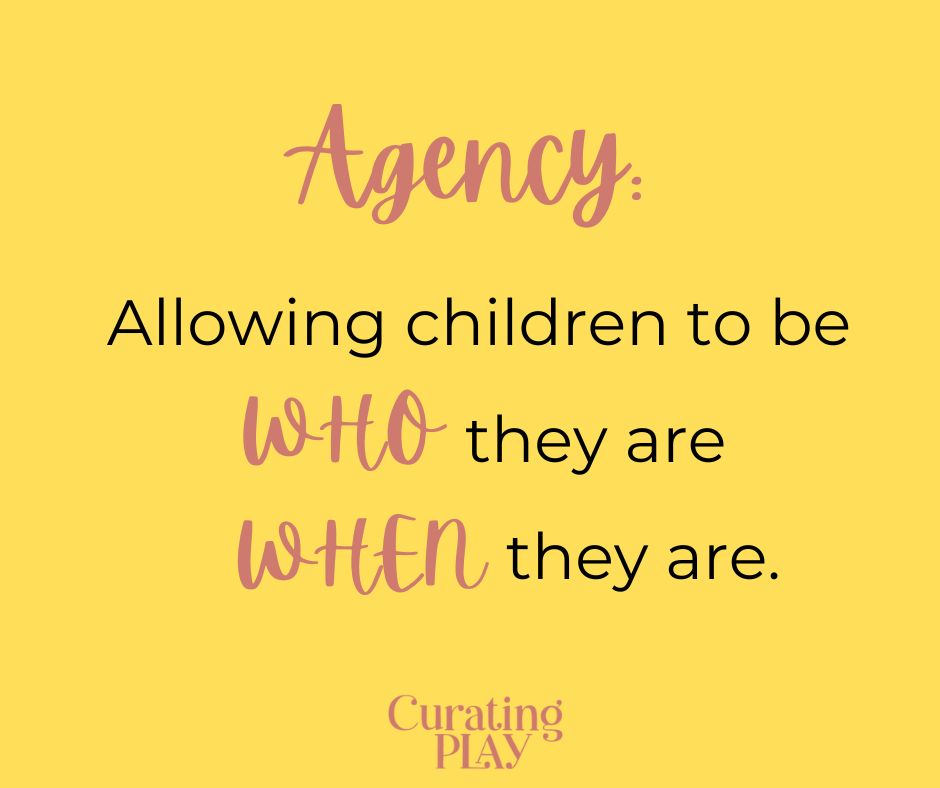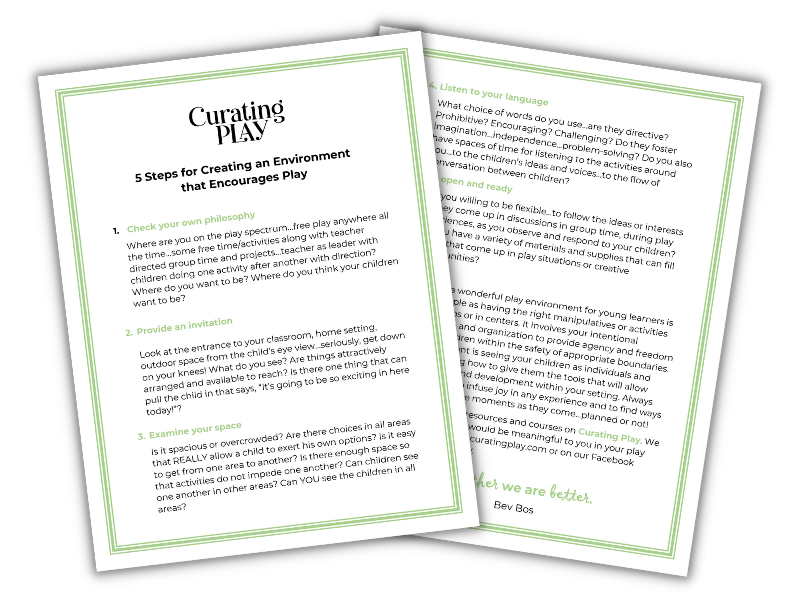Would you like to…
- enjoy watching important connections be made right in front of you?
- listen as discoveries are made without your input or intervention?
- relax into observations that provide important data and inspiration?
- dive into learning WITH your children?
You can do all those things…and do them while allowing your children to be WHO they
are, WHEN they are. In other words, instead of “getting them ready” for whatever year,
event or change comes next for them, you can provide the very best day (or year!) for
each child in your classroom, center or life by appreciating their voice, supporting their
inquiry and facilitating their exploration. We do this by understanding the concept of
agency in young children’s learning.

In the bustling world of early childhood education, the term “child agency” is an
important one. It’s a concept that places children at the heart of their learning journey,
recognizing them as active participants capable of making choices and having a say in
their learning experiences. This approach not only respects children’s individuality but
also fosters their development in meaningful ways. Let’s take a look at what child
agency means and why it’s crucial for effective learning. And be sure to follow our
Facebook and Instagram posts this month for more details on how educators and
parents can support the development of agency in their children’s worlds.
What is Child Agency?
Child agency refers to the ability of children to make decisions that influence their
learning and well-being. It’s about giving children the space to express their thoughts,
make choices, and take an active role in their learning processes. When children are
seen as capable and competent, they are more likely to engage deeply and take
ownership of their learning experiences.
The Importance of Child Agency
Empowering children with a sense of agency has profound impacts. It boosts their
confidence, encourages critical thinking, enhances motivation, and supports the
development of social and emotional skills. Children learn to trust their instincts, value
their voice, and collaborate with others. These are foundational skills that benefit
children not just in their early years but throughout their lives.
Recognizing and supporting child agency is a powerful philosophy for early childhood
educators. It’s about seeing children as capable beings with unique perspectives and
contributions. By fostering a sense of agency, we not only enhance their current
learning experiences but also equip them with the skills and confidence needed for
success in their future. Creating an environment where every child feels valued, heard,
and capable is a gift that we can offer the children in our lives. As we commit to
empowering our young learners, respecting their voices, and nurturing their potential we
encourage our children to be not just learners, but leaders as well.




